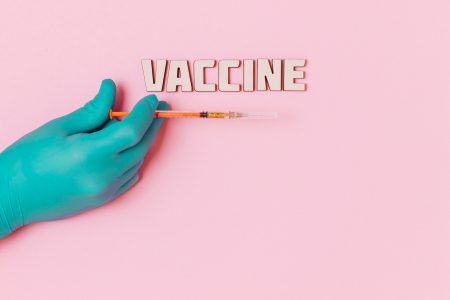The New York City Administration for Children’s Services (ACS) today announced the expansion of “A Safe Way Forward,” a prevention services program that provides support to survivors of domestic violence / intimate partner violence, the persons causing harm and their children. A new evaluation documents positive outcomes among the program’s participants. For example, survivors described increased self-esteem and increased confidence in their ability to execute a safety plan and make decisions that would keep their family safe. More than half of the persons causing harm said that the people around them had noticed a positive change in their behavior since they began participating in the program.
Previously, “A Safe Way Forward” was a demonstration project offered to families in the Bronx and Staten Island. Given the positive outcomes, ACS is now contracting with three providers. As part of today’s announcement, ACS will expand the program to also serve families in Brooklyn. The following providers have been awarded new contracts to provide these services: Safe Horizon (Staten Island), Children’s Aid Society (the Bronx) and MercyFirst (Brooklyn).
“In our mission to protect children and support families, ACS and our partners are working to address the root causes of family violence while we help survivors and children stay safe. That is why ‘A Safe Way Forward’ provides services to survivors of intimate partner violence and the children in the household, including information about how to make an effective safety plan, as well as interventions for the persons causing harm so that they can work towards changing their behavior and end the cycle of violence,” said Commissioner Jess Dannhauser. “I’m pleased by the results of our recent evaluation, which suggests that “A Safe Way Forward” is having a positive impact on families affected by intimate partner violence, and I look forward to expanding the program to three boroughs: Staten Island, the Bronx and now, Brooklyn.”
“Today’s announcement of the expansion of A Safe Way Forward demonstrates the administration’s ongoing commitment to supporting the whole person and whole family,” said Deputy Mayor for Health and Human Services Anne Williams-Isom. “Thank you to ACS, to all our provider partners, and to every person served by these programs for reaching out for support. We look forward to having these services be more available across NYC.”
“We applaud the expansion of NYC Administration for Children’s Services ‘A Safe Way Forward’ program,” said Mayor’s Office to End Domestic and Gender-Based Violence Commissioner Cecile Noel. “This innovative program provides survivors, their children, and persons causing harm with service options and social supports to create positive outcomes for the entire family. We look forward to our continued collaboration with ACS to support survivors in their communities while also identifying, preventing, and changing the harmful behavior that can perpetuate domestic violence.”
“We know that domestic violence and child abuse frequently co-occur. Safe Way Forward offers an innovative and holistic response to families in which domestic violence presents serious risks to children. In this model, we provide trauma-focused care to the whole family, including the person who has caused harm, while maintaining an unwavering focus on safety for both adult survivors and children. “A Safe Way Forward’ responds to longstanding gaps in care for families affected by domestic violence, and we welcome this expansion,” said Liz Roberts, Safe Horizon CEO. “We are proud to be a partner and service provider for this important program.”
“We are incredibly grateful for this opportunity to further develop the Safe Way Forward programming and continue to provide services specifically designed for families affected by intimate partner violence. We have learned how important it is to provide comprehensive case planning and therapeutic IPV intervention services to the whole family – the children, survivor parent, and the person causing harm parent. The unique and specialized approach to engage each family member has shown to support our efforts to increase safety to children and their parents and the stability in the home, to heal from the trauma of abuse, and to repair and strengthen the parent – child relationship. Our partnership with ACS has been invaluable and incredibly supportive throughout the process of program development and implementation. We look forward to continue our collaboration to further strengthen the SWF programming to families residing in the Bronx,” said Nazy Kaffashan, Director of Intimate Partner Violence Prevention and Intervention Services, at Children’s Aid.
“MercyFirst is honored to partner with ACS to help expand this critical and innovative program in New York City,” said Renée Skolaski, President & CEO of MercyFirst. “As a child welfare agency that has been working to strengthen Brooklyn families for over 128 years, we are committed to serving families experiencing intimate partner violence so that we can help break the cycle of abuse and trauma, support and rebuild strong and healthy families, and create positive outcomes for the children impacted.”
ACS provides prevention services to help support families in building skills to manage crises, maintain safety and stability within the home, and strengthen their ability to thrive within their community. With the help of a network of over 45 community-based providers, administering over 135 programs, more than 15,000 families each year receive supports like family therapy, mental health counseling, substance misuse treatment, and domestic/intimate partner violence interventions, as well as help accessing concrete supports, including food, diapers, cribs, benefits and housing supports. ACS’s nationally recognized continuum of prevention services have safely reduced the utilization of foster care. There were nearly 50,000 New York City children in foster care 25 years ago, and 17,000 just a decade ago. Today, there are fewer than 7,200 New York City children in foster care – a historic low.
In 2019, ACS launched “A Safe Way Forward,” a prevention services program offered to families in the Bronx and Staten Island impacted by intimate partner violence, specifically families receiving court-ordered supervision. The program was informed by 12 months of exhaustive research including interviews with over 100 national experts and close collaboration with the Mayor’s Office to End Domestic and Gender-Based Violence. The innovative program uniquely works with the entire family system, offering separate and simultaneous trauma-informed case planning and research-informed therapeutic services to the survivor, child(ren), and person causing harm. ACS says that, when safe to do so, involving the person causing harm in these services can provide the individual with the opportunity to learn more about their triggers and how their behavior is impacting the family. For instance, exposure to intimate partner violence has a profound negative impact on children’s social and emotional development. The goal of the program is to promote behavior change to protect the safety of the survivor and children, and to interrupt the intergenerational impact intimate partner violence can have on families.
A new evaluation of the program, conducted by Westat, highlights positive outcomes for its participants. According to the evaluation, participants expressed a high level of satisfaction with the program. In fact, more than half of survivors and persons causing harm felt they had made progress in improving their emotional self-regulation and communication skills, keys to moving forward with healthy and safe relationships. When asked how the program was helping them to make progress toward their goals, both survivors and persons causing harm said that, in addition to concrete assistance and clinical work, staff helped them by listening, being understanding, offering suggestions and advice, and just being there.
Highlights from the evaluation can be found below. To read the full evaluation please visit here.
Outcomes among survivors served by the program:
- Nearly all survivors expressed confidence in their ability to make good safety decisions, and several spoke of learning to recognize the signs of emotional and physical abuse during their services.
- Survivors described increased self-esteem and self-confidence, a greater understanding of the dynamics of intimate partner violence, and furthering their own life goals and family goals.
- One survivor said, “I have learned how to manage being a single mother with two boys that were very attached to their dad and it’s hard for them to just wake up one day and he is not over there because of certain situations. I think I have been doing good. I have been trying my best.”
- Another survivor said, “Everything that I went through, I learned from it. And with their [A Safe Way Forward’s] help, I am 10 times stronger.”
- Approximately a third of the survivors interviewed said they were working on improving their relationship with their partners and were making progress due to both partners learning better communication and emotional self-regulation through “A Safe Way Forward.”
- Referring to the program, one survivor said: “I have always said that I do not know what would have become of me if they had not helped me. So, I would recommend them and I would say that what helped us the most was that they provided us with counseling, which was what helped us the most to get ahead. So, I think their objective is that the families do not feel alone, that despite what they went through there are more people who can look out for them.”
Outcomes among persons causing harm served by the program:
- Persons causing harm said they learned strategies for keeping their families safe by controlling their own negative emotions and attitudes that lead to violence and abusive behavior. Most persons causing harm said they had used these techniques in their daily lives, and found them useful in controlling their emotions and improving the quality of their parenting.
- More than half of persons causing harm said that the people around them had noticed a positive change in their behavior since they started services.
- Persons causing harm reported an increased ability to recognize emotional triggers and ask for help when they needed it.
- One person causing harm said, “They helped me learn my triggers…so it is kind of easy. It seems hard in the beginning, but when you believe in it, it in not hard at all. And it is mostly who you surround yourself with.”
- Another person causing harm said, “Yes there are times that we have had words and when I see that the situation is becoming too much, I just say ‘okay’ and I turn around and go to the sink, wash my hands, take a breath and then go back.”
- Referring to the program, one person causing harm said: “I would recommend it to anybody that needs it. It has helped me a lot. Like I said, in the communication skills towards my kids and my family, friends, and understanding more about other people’s emotions.”
- Another person causing harm said, “[Two Safe Way Forward staff have] been like a brother and sister to me, because…we’ve had so many emotional conversations that I feel like these people…I can actually call them part of my family because they have been there, and they have not…thrown me to the side. They never said to me that, “You are the fault of this or this is the reason why things are going wrong.” They never made me feel like I was small. They always made me feel like there was something better that you can do and you can improve instead of just saying, “Well, you know what? You just failed…” or something like that.”








